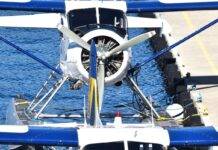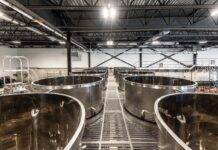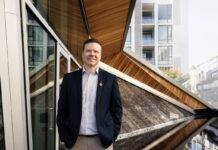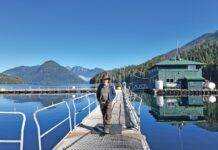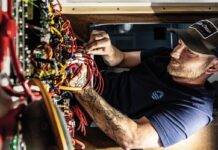
In late April, a small group of new recruits arrived in Nanaimo, en route to jobs at Tofino Resort + Marina. Like many international workers who head to Canadian tourist towns each year, they were young, energetic and eager to begin their new roles. But unlike most seasonal hires, this group shared a complex life experience.
“They’ve all recently come out of refugee camps in Malawi or Kenya,” says Alexandra Vasiliou, the resort’s human resources manager.
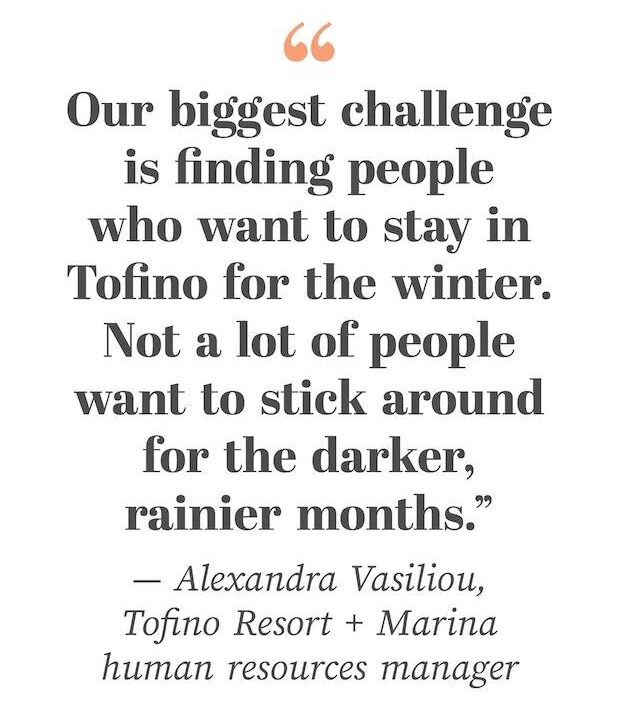 Rather than arriving on working holiday visas the way many young workers do, these employees came to Canada initially through the federal government’s private sponsorship of refugees program and, starting in 2023, through the new Economic Mobility Pathways Pilot (EMPP) — a lengthy process that began when they were identified, recruited and vetted for resettlement by World University Service Canada (WUSC). Through WUSC and the newly developed EMPP program, they received employment training, résumé support and were interviewed by prospective employers like Vasiliou. Once hired, they signed a one-year employment contract designed to support their transition to Canadian life.
Rather than arriving on working holiday visas the way many young workers do, these employees came to Canada initially through the federal government’s private sponsorship of refugees program and, starting in 2023, through the new Economic Mobility Pathways Pilot (EMPP) — a lengthy process that began when they were identified, recruited and vetted for resettlement by World University Service Canada (WUSC). Through WUSC and the newly developed EMPP program, they received employment training, résumé support and were interviewed by prospective employers like Vasiliou. Once hired, they signed a one-year employment contract designed to support their transition to Canadian life.
While a guaranteed year of employment is essential for the newcomers, Vasiliou says the management at Tofino Resort + Marina has realized the benefits are mutual. “It’s not just the employees who gain stability,” she says. “Businesses do, too.” Like many tourism operators on Vancouver Island, the resort has long struggled to recruit and retain entry-level staff, particularly during the off-season. “Our biggest challenge is finding people who want to stay in Tofino for the winter,” Vasiliou says. “Not a lot of people want to stick around for the darker, rainier months.”
Potential Solution
In the past, this high turnover led Vasiliou to pay increased recruiting, training and overtime costs. At times, the resort was even forced to turn away visitor bookings due to staffing shortages. But back in 2021, when general manager John McKeon — then the assistant GM — read a story about a pilot project called HIRES, he saw a potential solution.
HIRES, a proof-of-concept pilot developed by WUSC that evolved to operate under the federal government’s EMPP pathway, is managed by Eliza Seaborn, program manager of economic mobility pathways for refugees. WUSC, a long-standing leader in refugee resettlement, launched its flagship student refugee program in the 1970s, and since then has helped more than 2,000 refugee students come to Canada as permanent residents. In recent years, the organization has sought to expand its impact through innovative new pathways.
“The idea behind HIRES was to create a model where refugees arrive with employment already secured,” Seaborn says. “We provide some bridge training, but the goal is to accelerate their integration into Canada’s labour market and strengthen their self-reliance.” Given the persistent labour shortages in hospitality and tourism — and the sector’s appeal to young, entry-level job seekers — it was a natural place to start.
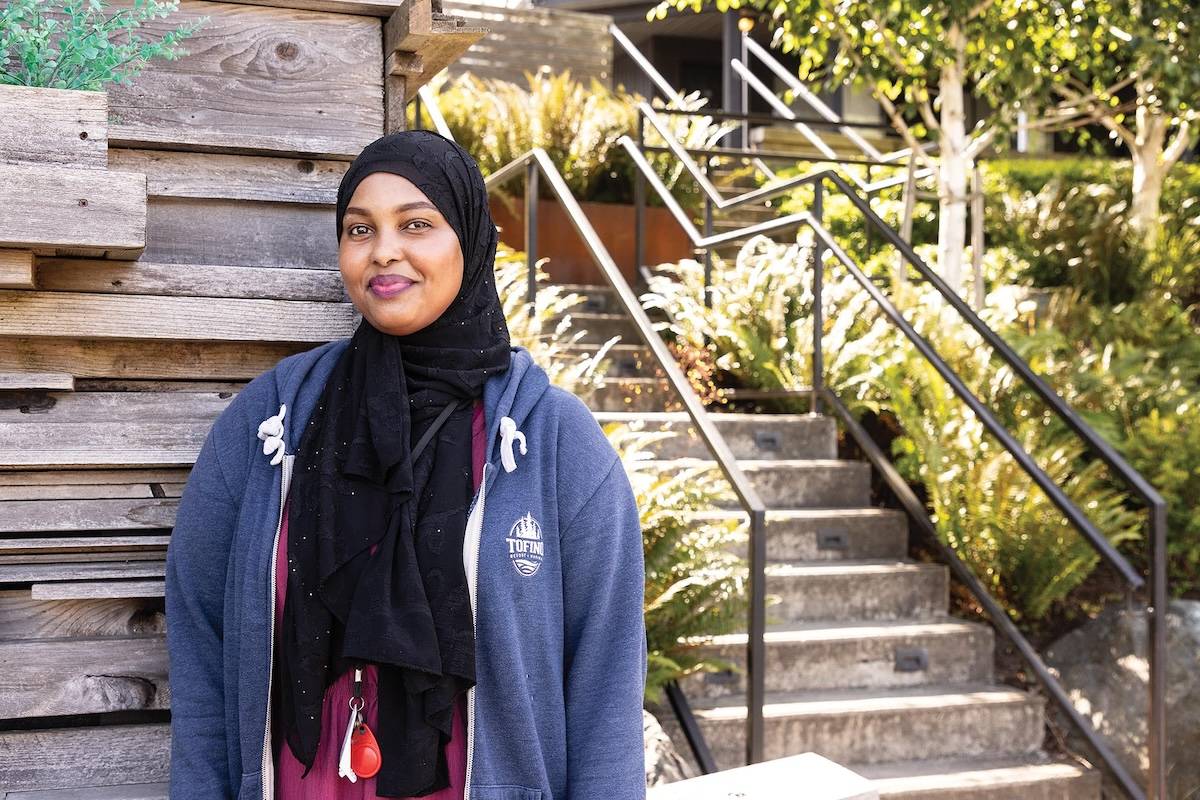
Post-arrival Training
Despite a solid plan, the program’s first year was disrupted by the COVID pandemic. Travel and quarantine restrictions forced the pre-departure training to shift to post-arrival, and Camosun College in Victoria provided a two-month program. Meanwhile, several Victoria-based hotels originally lined up to participate were temporarily scaling back or closing their operations. “We thought we might need to pivot to health care,” Seaborn recalls. But when she reached out to other communities, then-general manager Samantha Hackett at Long Beach Lodge Resort in Tofino recognized the program’s potential.
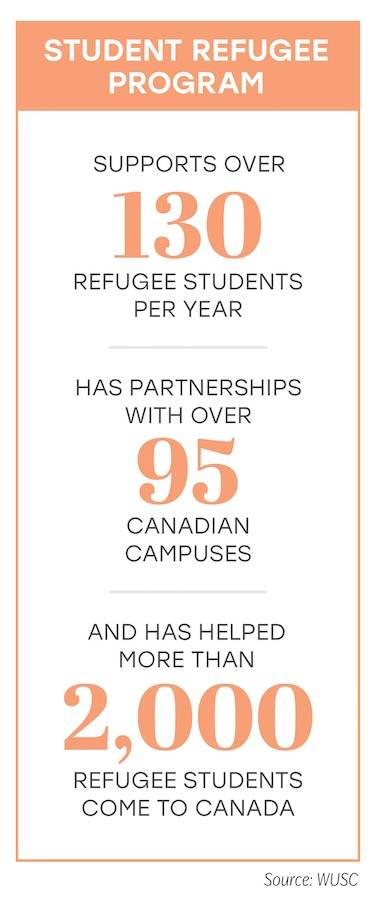 The first nine HIRES participants began work in November 2021 after completing their training, taking jobs at Long Beach Lodge, Tofino Resort + Marina and Shelter/Shed Restaurant. Since then, the initiative has expanded to employers in Victoria, the Okanagan Valley and East Kootenays and to other Tofino-based businesses — including Hotel Zed and Pacific Sands Beach Resort — which combined have hired over 102 young adults and given them a new start.
The first nine HIRES participants began work in November 2021 after completing their training, taking jobs at Long Beach Lodge, Tofino Resort + Marina and Shelter/Shed Restaurant. Since then, the initiative has expanded to employers in Victoria, the Okanagan Valley and East Kootenays and to other Tofino-based businesses — including Hotel Zed and Pacific Sands Beach Resort — which combined have hired over 102 young adults and given them a new start.
With youth representing nearly two-thirds of the world’s 35.3 million refugees, but only 150,000 to 160,000 people resettled globally each year, the need is urgent. Yet successful resettlement depends on small networks of supportive individuals, communities and employers.
WUSC connects employers with candidates ages 20 to 29 who speak English and have experience in TEER 4 and 5 categories under the National Occupation Classification (NOC) — guest services, housekeeping, kitchens and other support roles. Jobs must be full-time, year-round (30-plus hours a week). Seaborn also provides guidance to help employers support their new hires, drawing on WUSC’s decades of resettlement experience.
Extra Care Provided Early
While the level of assistance varies by employer, Vasiliou believes the success at Tofino Resort + Marina stems in part from the extra care provided early on. “It’s not that different from hiring through working holiday agencies,” she says. “They’re all young people learning to be away from their homes and families.”
Before arrival, Vasiliou sends a welcome email with details about what to expect and asks about personal needs. “I like to do a small grocery shop — make sure they have some favourite foods, a toothbrush, toothpaste, deodorant.” She meets them in Nanaimo and helps with essentials like bank accounts, phones and letting their families know they’ve arrived safely. “It’s not just about work. It’s about integrating into a new country and way of life.”
New employees at Tofino Resort + Marina also receive two months of free staff housing, something that’s critical for those arriving from refugee camps who often lack savings or knowledge of how to secure a rental. Shared accommodation also offers a built-in support network of peers on similar journeys.
After up to a week of settling in and getting comfortable navigating daily life — setting thermostats and using washing machines included — Vasiliou begins their workplace orientation and training: policies, benefits, safety, a tour and shadowing a team lead.
Success Stories Emerging
Though onboarding takes more time and effort, Vasiliou says the payoff is undeniable. “These employees consistently stand out for their work ethic, attitude and the positivity they bring to our workplace culture,” she says. The results have exceeded her expectations. The program has not only stabilized staffing, it’s created a pipeline of strong performers. “Our internal promotions have never been so frequent,” she says. “Hiring that first cohort didn’t just solve a workforce challenge. We gained exceptional employees and played a small part in helping them begin new lives in Canada.”
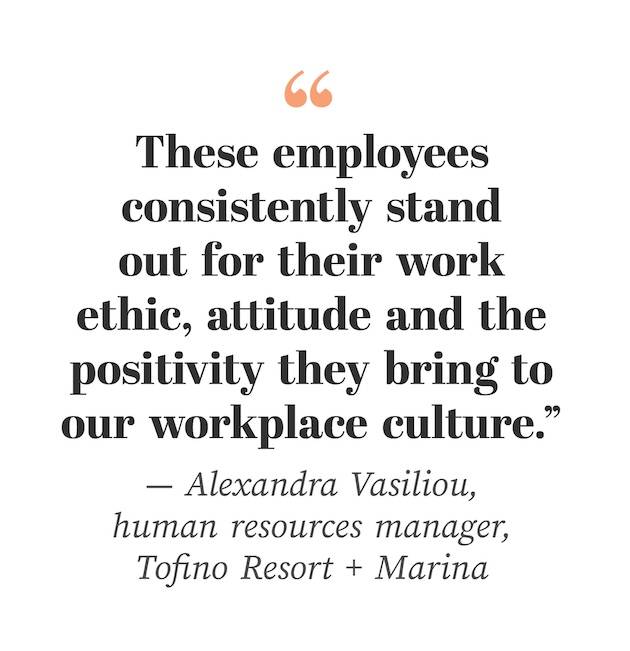 As the first cohorts settle into life in Canada, success stories are emerging. Some employees have stayed on beyond their initial one-year contracts after being promoted. Others have used the opportunity as a launch pad, pursuing post-secondary education, trades training or relocating to larger cities like Nanaimo or Victoria, where they’ve stepped into team-lead and supervisory roles in the hospitality sector.
As the first cohorts settle into life in Canada, success stories are emerging. Some employees have stayed on beyond their initial one-year contracts after being promoted. Others have used the opportunity as a launch pad, pursuing post-secondary education, trades training or relocating to larger cities like Nanaimo or Victoria, where they’ve stepped into team-lead and supervisory roles in the hospitality sector.
Seaborn notes that lessons learned in the early years have helped refine the program. Pre-arrival education now places greater emphasis on workplace expectations — how to ask for help, receive feedback and navigate interpersonal challenges. “These are people who’ve already shown incredible initiative by seizing the few opportunities available in camps,” she says. “The employers we work with say they can teach job skills, but they can’t teach attitude — and it’s those unspoken expectations that really help build confidence.”
Still, despite strong results and enthusiastic feedback from employers like Tofino Resort + Marina — which has just confirmed its next group of arrivals for 2026 — uptake has been slower than hoped.
“We’d love to see more businesses take part in HIRES-EMPP,” Seaborn says. “There’s real opportunity here — not just to fill roles, but to change lives.”
Vasiliou agrees. She says she’s often struck by how quickly her employees adapt. “I’ll see them at a beach fire after work or the jazz festival in town and realize that six months ago, they were in a refugee camp.” She adds: “It’s not just the workers who got lucky with this opportunity. They’ve made our teams stronger and helped Tofino become a richer, more welcoming and more diverse place.”


